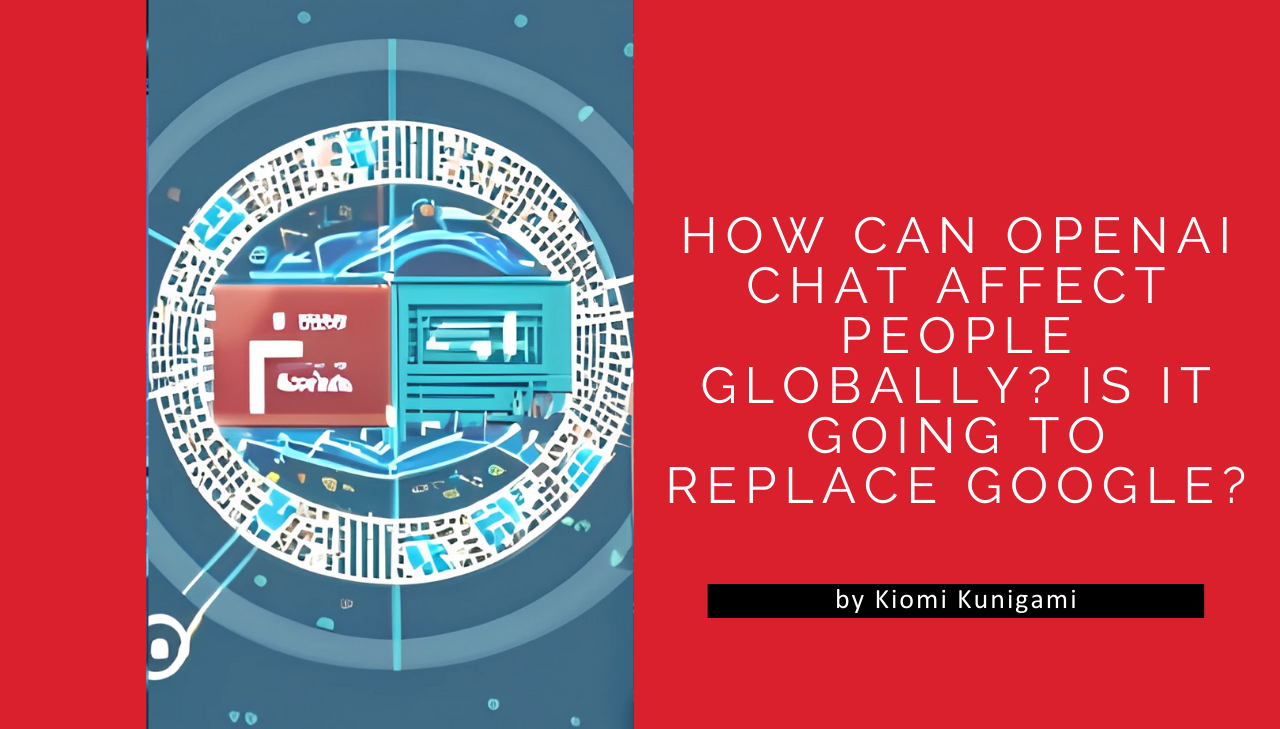
As more individuals learn about the potential of this ground-breaking technology, they are asking these questions. Modern language models like OpenAI Chat have been trained on enormous quantities of data to provide replies to text-based inputs that are human-like. The way we engage with information online might be completely changed by this technology, despite the fact that it is still a relatively young one. Two months after launch, it has 100 million users (The Guardian, 2023).
The manner in which new generations hunt for information online might be one of the significant effects of OpenAI Chat. It has been reported that about 40% of Generation Z prefers social media sites like TikTok to conventional search engines like Google (Dobuski, 2022). This is due to the fact that people are used to receiving information in brief, aesthetically appealing bursts rather than poring through pages of search results. As more individuals get used to engaging with chatbots and virtual assistants, such as OpenAI Chat, it's feasible that this tendency may spread to subsequent generations.
Giving consumers access to more "precise" and "pertinent" information is another way that OpenAI Chat may have an influence on people all across the world in the future. OpenAI Chat, in contrast to conventional search engines like Google, can comprehend real language and offer more individualized replies depending on the user's particular wants and circumstances. For instance, if a user asks OpenAI Chat a question about a certain subject, the AI-powered chatbot may examine the user's inquiry and give a more detailed response instead of just pointing them toward a search results list. However, it could not always be reliable. The machine learning capabilities of OpenAI Chat also enable it to develop over time by learning from user interactions, resulting in even more precise and pertinent replies in the future. Users may spend less time and effort searching for information and getting more reliable responses as a result (West, 2022) (Conconi, 2023).
Of course, many people are curious as to whether OpenAI Chat will someday replace Google as the go-to internet search engine. Although it's too soon to tell for sure, it's feasible that chatbots and virtual assistants could surpass conventional search engines in popularity in the upcoming years. Although there are some similarities between ChatGPT and Google Search, there is a significant difference between the two, and although they have roughly the same interfaces and are effective tools for gathering information, they are not necessarily direct rivals (Bowman, 2022). Google is a search engine that aids users in finding information online, whereas OpenAI Chat is a language model that can respond to inquiries with individualized information. Both technologies have advantages and disadvantages (Conconi, 2023), and for the foreseeable future, it's probable that they will coexist in the internet ecosystem. Furthermore, Google offers LaMDA (Cheng & Thoppilan, 2022), a ChatGPT-like chatbot that some consider being smarter than OpenAI's most recent iteration. Google has been hesitant to make it public, though, perhaps because its information isn't always accurate and it doesn't want to jeopardize its primary search business model.
In conclusion, OpenAI Chat may change how people engage with and seek information online. Since it can simulate human reactions to textual inputs, it has the potential to be helpful in a broad variety of fields and situations. Although OpenAI Chat is unlikely to replace Google completely, it is apparent that chatbots and virtual assistants will play an increasingly crucial part in how we access information in the coming years. Therefore, it will be interesting to observe how this technology affects the way we use the internet as it develops and improves.
Bibliography
Bowman, J. (2022, December 15). Is ChatGPT Really a Google Killer? Here's What the New AI Means for Alphabet Stock. Retrieved from The Motley Fool: https://www.fool.com/investing/2022/12/15/is-chatgpt-really-a-google-killer-heres-what-the-n/
Cheng, H.-T., & Thoppilan, R. (2022, January 21). LaMDA: Towards Safe, Grounded, and High-Quality Dialog Models for Everything. Retrieved from Google Blog: https://ai.googleblog.com/2022/01/lamda-towards-safe-grounded-and-high.html
Conconi, A. (2023, January 9). Will ChatGPT Kill Google? No. Here's Why. Retrieved from LinkedIn: https://www.linkedin.com/pulse/chatgpt-kill-google-heres-why-alex-conconi/
Dobuski, M. (2022, August 17). Gen Z is bypassing Google for TikTok as a search engine. Retrieved from abc News: https://abcnews.go.com/Technology/gen-bypassing-google-tiktok-search-engine/story?id=88493981
The Guardian. (2023, February ). The Guardian. Retrieved from ChatGPT reaches 100 million users two months after launch: https://www.theguardian.com/technology/2023/feb/02/chatgpt-100-million-users-open-ai-fastest-growing-app
West, J. (2022, December 7). Will OpenAI and ChatGPT replace Google Search? Retrieved from Midas Letter Live: https://midasletter.com/2022/12/will-openai-and-chatgpt-replace-google-search/
– Kiomi Kunigami